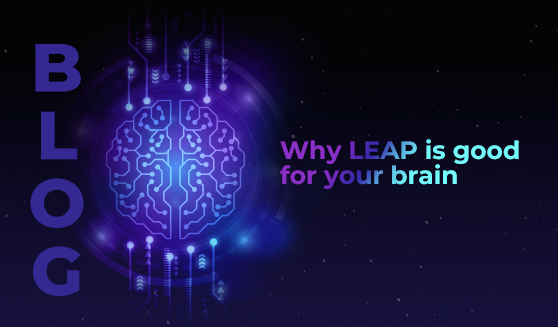
Kingdom was in the middle of the third and final phase of its bold three-phase digital transformation strategy when COVID-19 struck.
E-governance dominated the first two phases of the programme. In contrast, the current chapter, due to conclude in 2022, focuses on digital transformation in healthcare, education, e-commerce, and smart cities. Guided by the overarching Saudi Arabia’s Vision 2030, the blueprint envisions societal evolution with advanced digital technology as the engine.
The country’s grand ambitions have a lot going for it. Scroll through to the Saudi country section of the Huawei Global Connectivity Index for 2019, and a picture emerges of a country where vision and realism are not that far apart. Saudi Arabia achieved a maximum ‘10/10’ for smartphone penetration and the use of mobile broadband connections.
Further, data from research firm GlobalData indicates the number of internet users in Saudi Arabia swelled by 15%, or 4.3 million people, between 2019 and 2020. Overall internet penetration reached 93% by January 2020, matched by only a few other countries around the globe.
Then you have leading Saudi companies that have embraced digital business transformation and are now regional and global trailblazers. Saudi Aramco, Seera, STC, Almarai, and more come to mind.
Such progress requires an equally auspicious setting to celebrate. Enter LEAP, a global tech event that we have designed around the idea that Saudi Arabia possesses all the key ingredients to emerge as a regional, if not global, digital leader.
Attendees will be treated to a curated menu of emerging technologies such as Artificial Intelligence; Future Energy; Startups; FinTech; the Creative Economy; EduTech; BioTech and Health; and Smart Cities. Saudi businesses keen to sharpen their digital edge will be spoilt for choice.
“LEAP provides a place where knowledge can be shared, where tech specialists can connect with partners and investors, where innovation can be showcased, and where opportunities to leap forward and onward can be found,” said Michael Champion of head of OnegiantLeap.com.
LEAP is scheduled for February 2022, hopefully at a time when the global economy is well on the way to a post-COVID recovery. Undoubtedly, Coronavirus and its impact will still be high on the agenda.
COVID-19
While COVID-19 was a shock to the system, it became apparent that nations and organisations that had embraced digital transformation
were better positioned to overcome the challenges presented by an unpredictable epidemic.
“The COVID-19 pandemic has shown how adaptable nations have to be to endure crises of this nature,” said Eng. Nawaf Alhoshan, Deputy Minister for Technology Development at the Ministry of Communications and Information Technology.
“It is reasonable to predict that this will not be the last pandemic, and we should be mindful of other threats such as climate change and the impact extreme weather has on critical infrastructure. “Necessity is the mother of invention, and despite the severe economic impact of COVID-19, we also saw many companies flourishing, especially those that disrupted traditional ways of working. For example, food delivery apps boomed as did online grocery shopping, and of course remote working and video conferencing become ubiquitous,” he added.
|
In the region, organisations, both public and private, pivoted to digital business models in a manner of weeks. “There was a surge in spending in technologies such as cloud (especially IaaS and SaaS), cyber security, collaboration applications, analytics, artificial intelligence and other digital services. With the adoption of RPA or intelligent process automation, organisations increasingly started looking at the digital workforce,” said Manish Ranjan, program manager- software & cloud, MEA Region with research firm IDC.
“To support customer services, there was an increase in mobile application development and apps modernisation especially within e-commerce, retail, healthcare and the government sectors,” he added.
Healthcare, for obvious reasons, was at the heart of the ensuing turmoil, literally and figuratively. There were fears, some of which came true in certain countries, of healthcare systems collapsing under the sheer volume of COVID-19 caseloads.
Luckily for Saudi Arabia, evidence shows a focus on digital healthcare, such as its telemedicine framework published just six-months prior, helped the country fend off the worst of the pandemic. Figures released by CoronaTracker showed that 80.2% of people infected
by the virus in Saudi Arabia have now made a full recovery, well above the global figure of 57%.
|
Aftermath
In a recent IDC survey of CIOs in Saudi Arabia, 51% said they plan to accelerate existing digital transformation strategies to meet new customer demand and emerge agiler at the other end of this crisis. “[It] is important to highlight that 22% of the CIOs [said] they would initiate completely new digital transformation efforts to meet changing customer and operational needs,” Ranjan said.
You can expect accelerated investment in digital healthcare in the post-COVID resource realignment. “It will be inevitable that biotechnologies and healthtech will receive much more investment as people across the world are more mindful of the damage that can be caused if readiness to surmount health crises is suboptimal,” said Eng. Alhoshan.
Part of our remit at LEAP is to help accelerate the growth of Saudi Arabia’s IT sector by 50% and boost ICT’s contribution to GDP by SAR50bn over the next five years. The goal of this event has gained new momentum as the Kingdom pursues its vision of one of the most technologically-advanced societies on earth.








